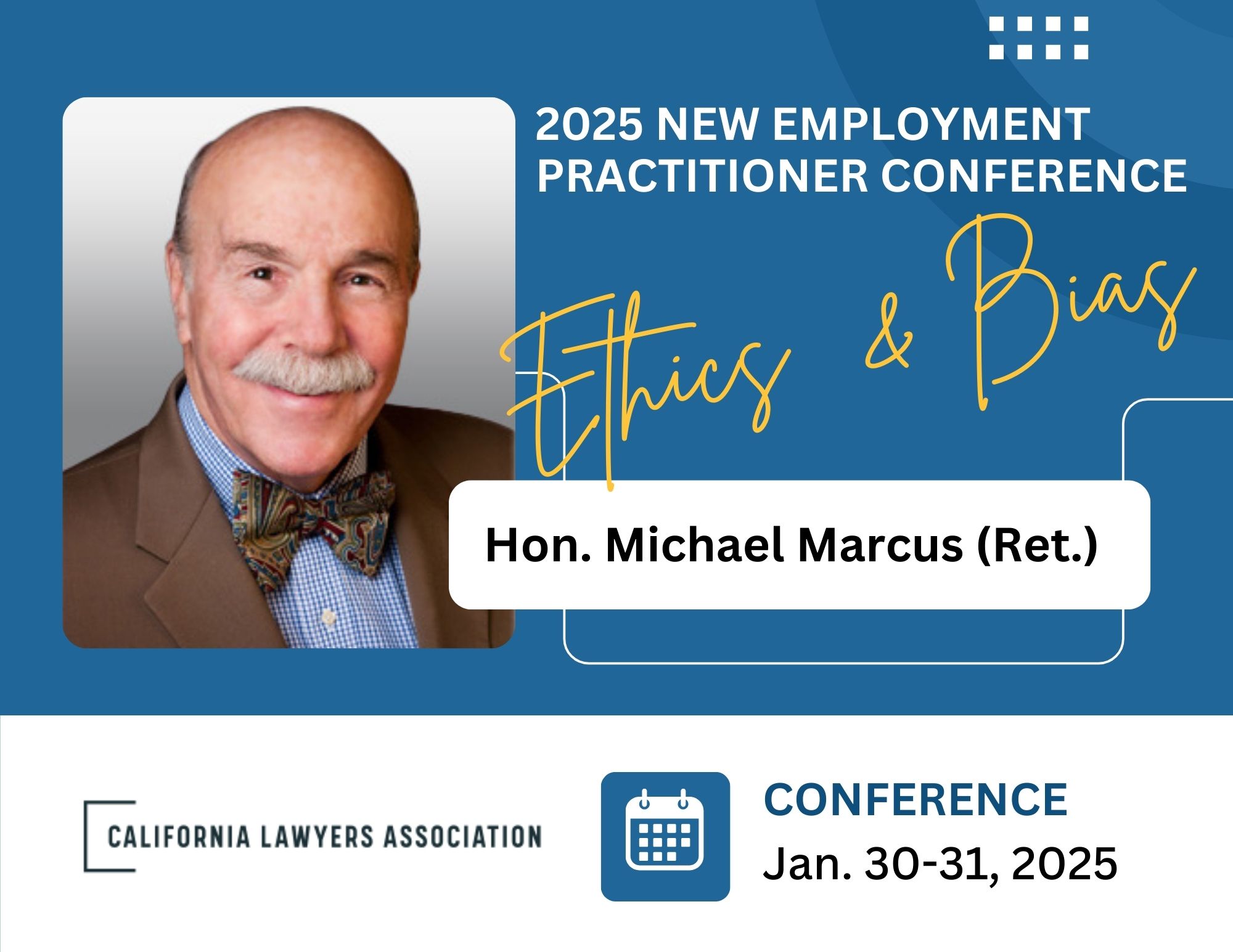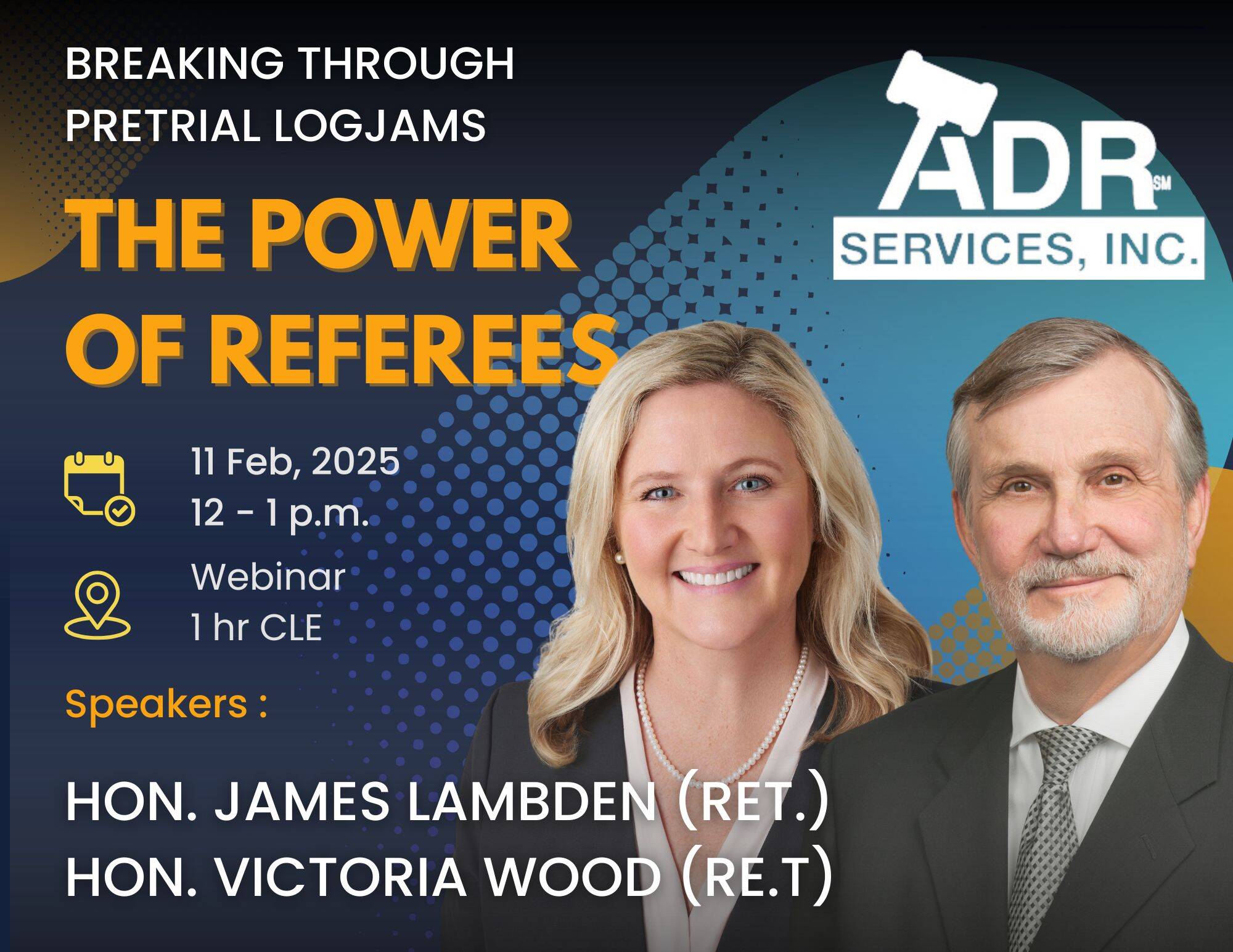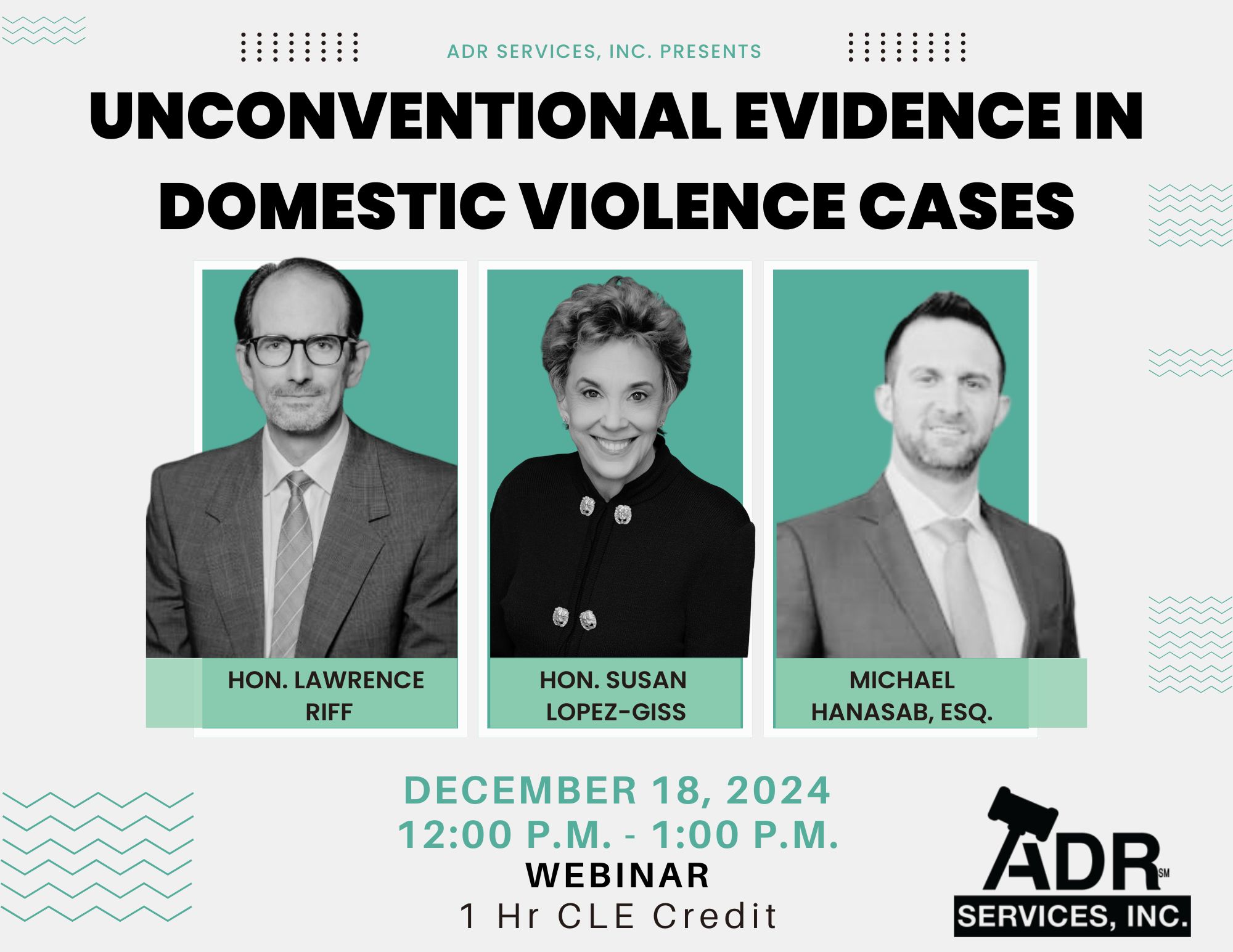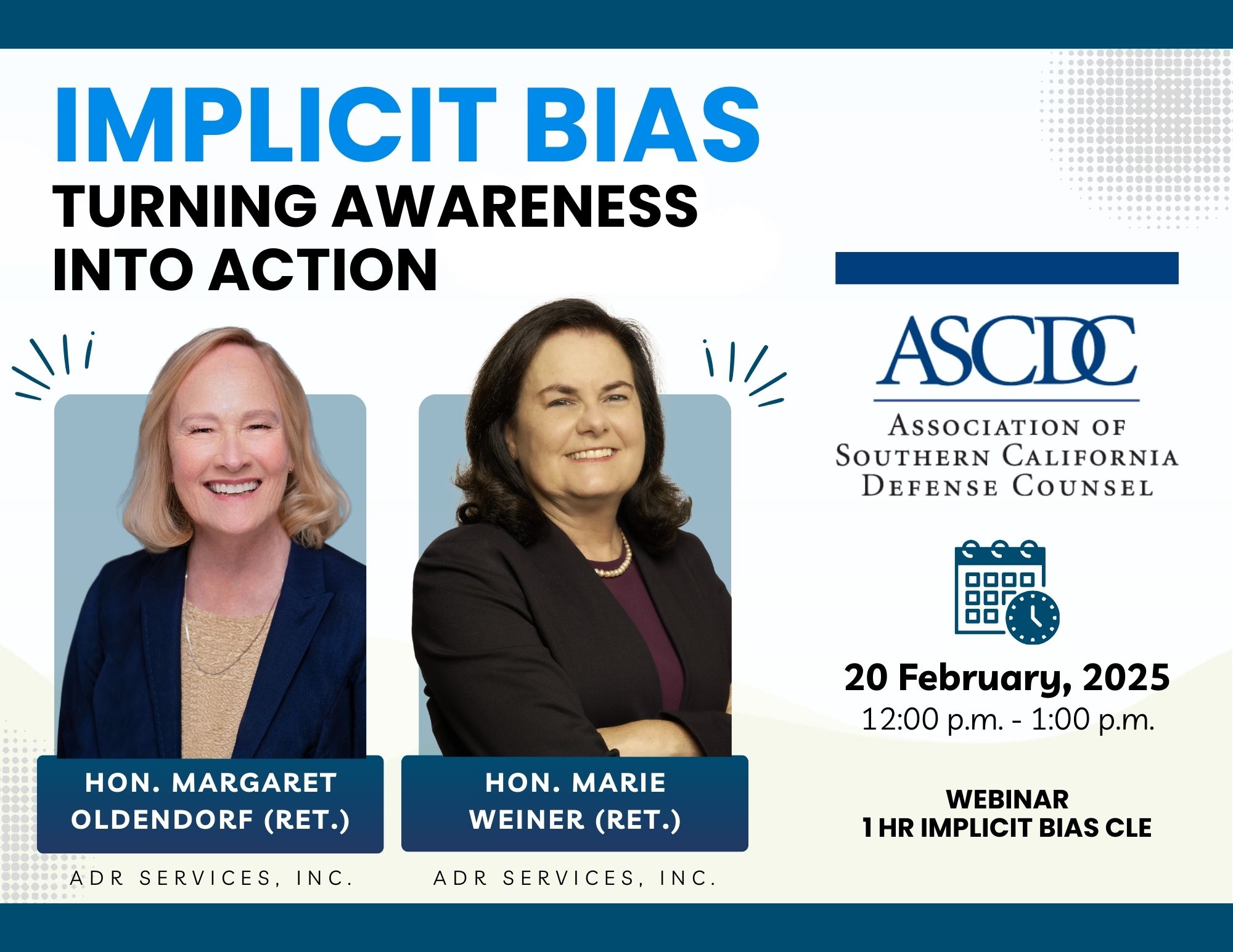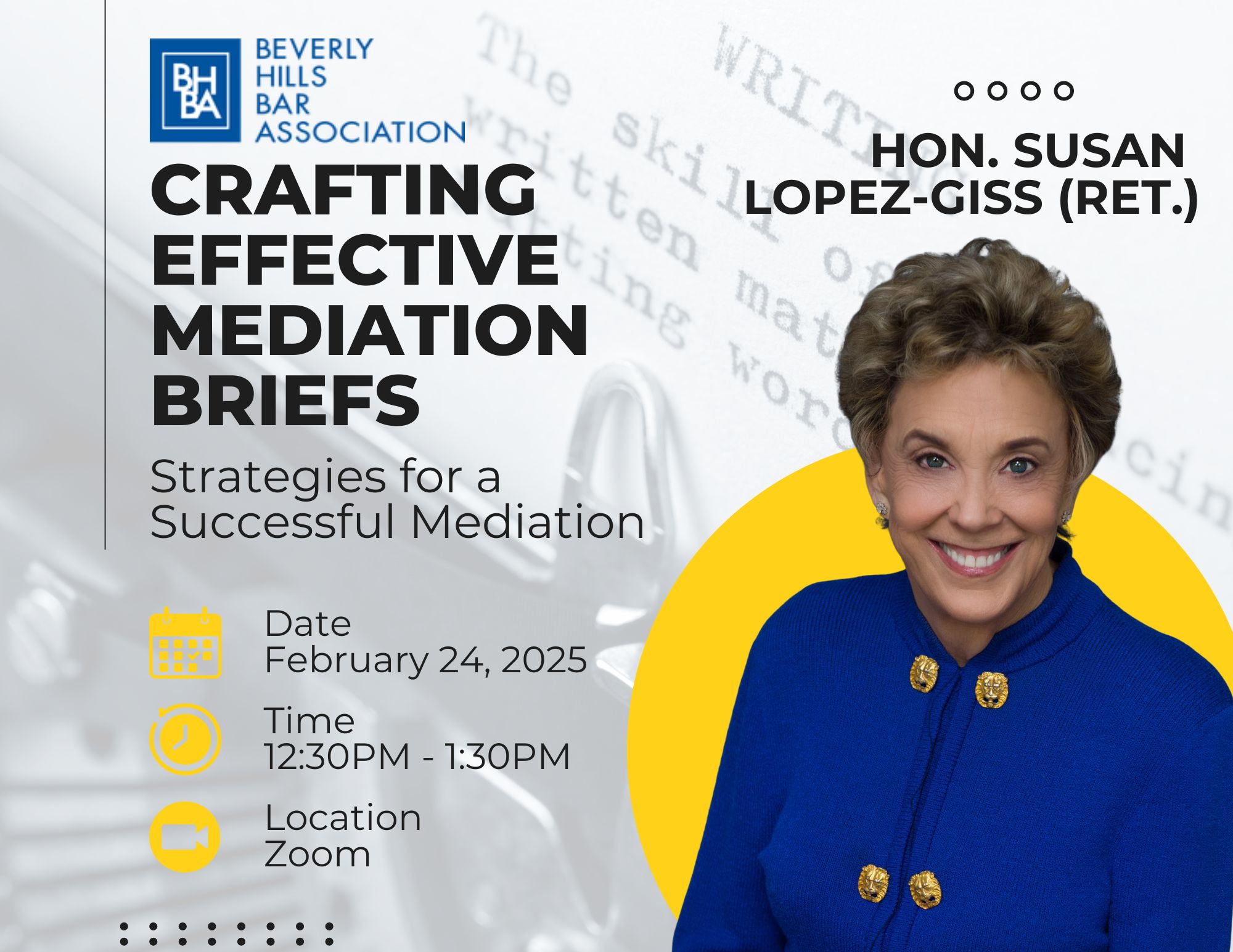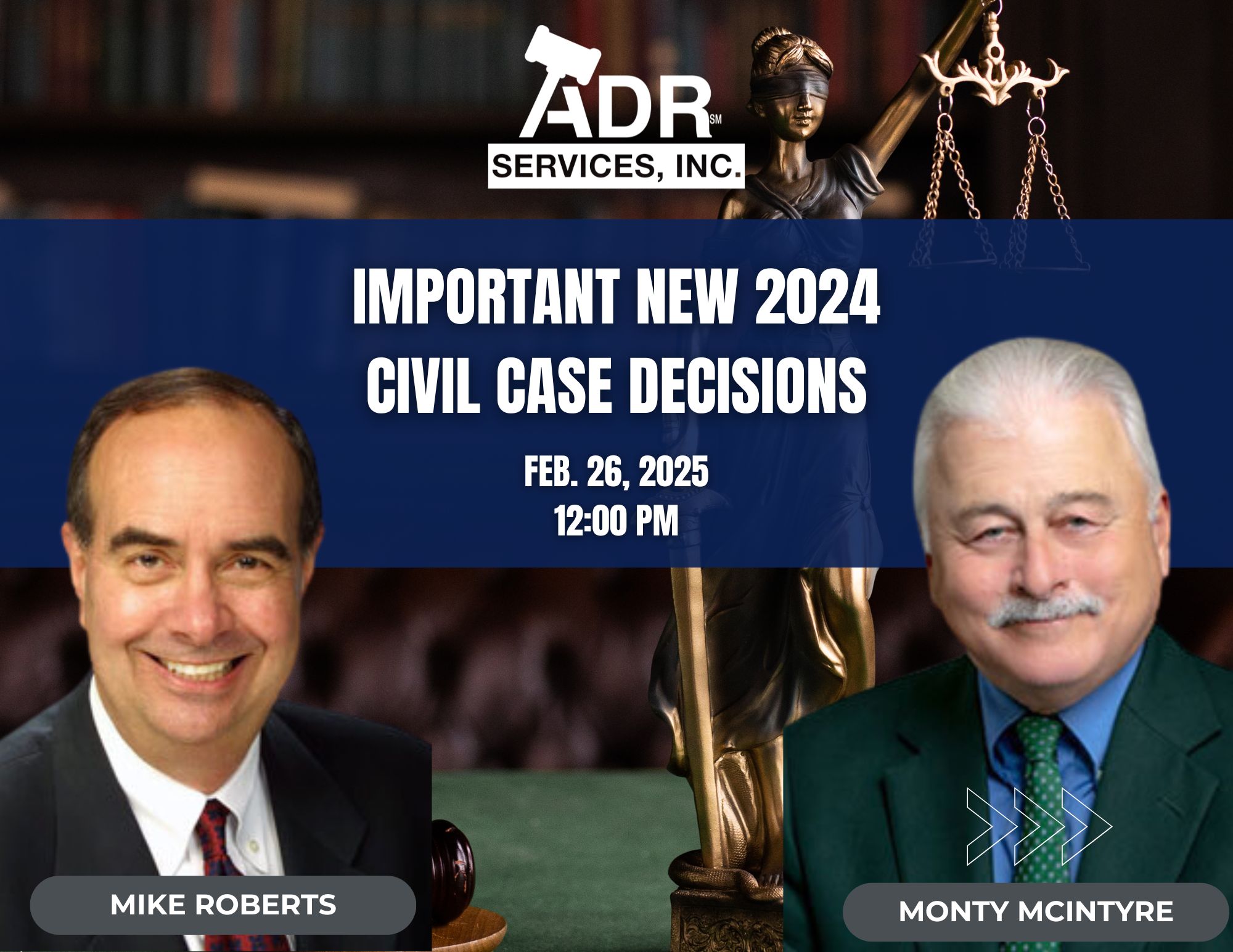1 Hour Implicit Bias Credit
Recognizing and Combatting Implicit Bias
OCBA Alternative Dispute Resolution Section Meeting
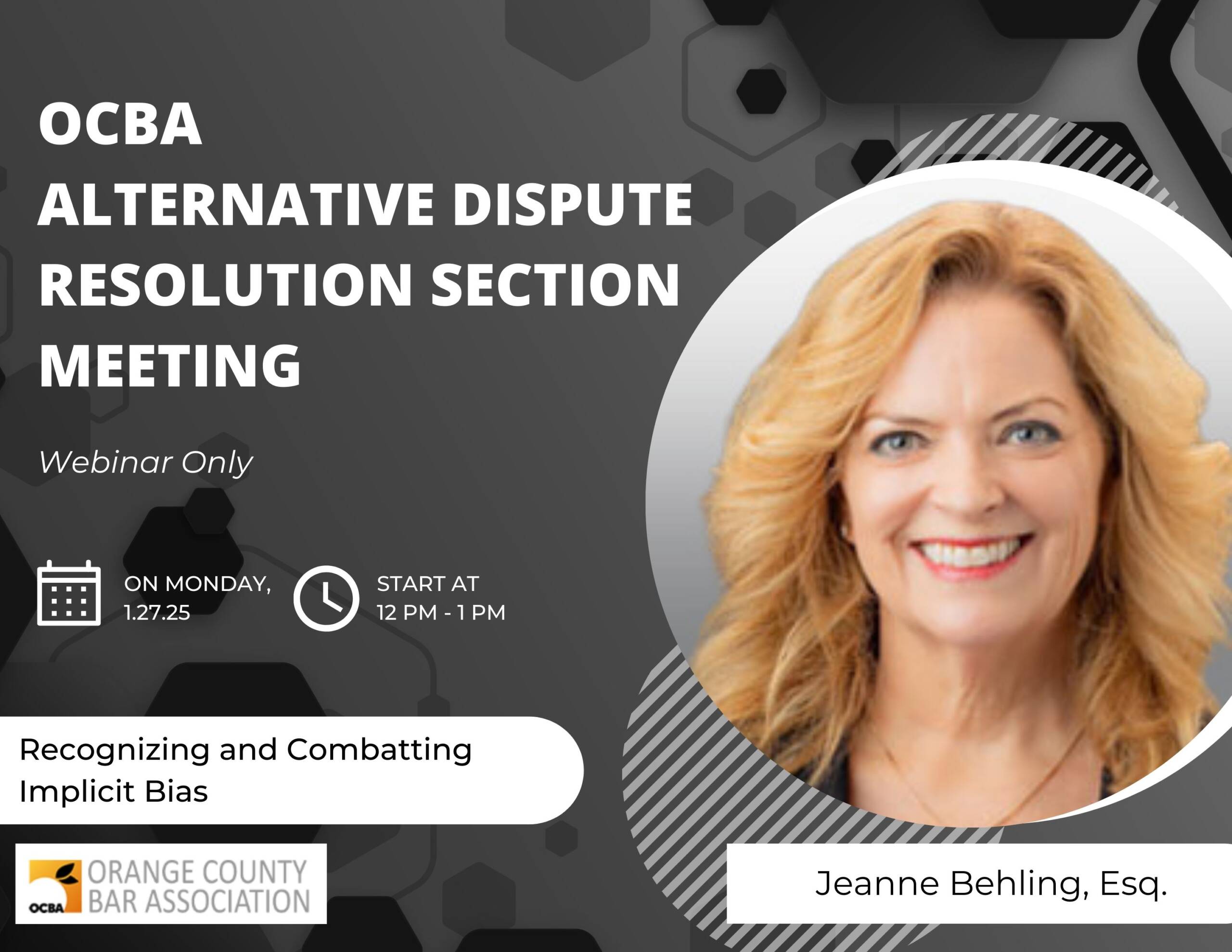
1 Hour Implicit Bias Credit
Recognizing and Combatting Implicit Bias
OCBA Alternative Dispute Resolution Section Meeting
We all have Implicit Biases. Challenge yourself to learn your biases and learn tools to reduce your own bias.

